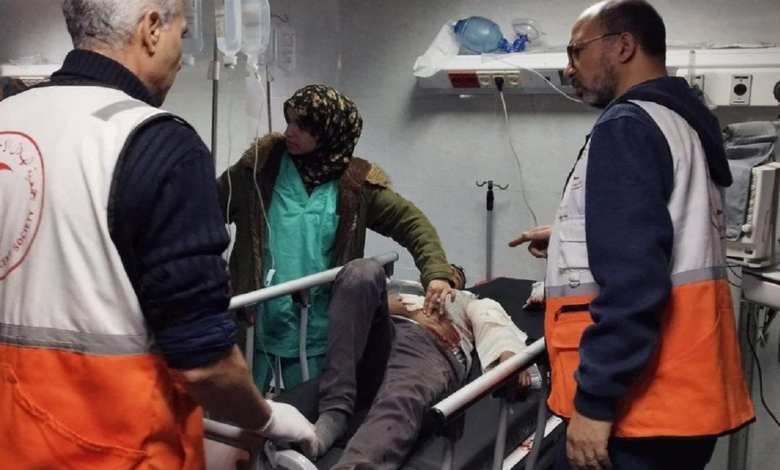The Guardian: People with chronic diseases are the hidden victims of the Gaza war

| Bombing hospitals and preventing medicine from entering Gaza have endangered the lives of people with chronic diseases such as kidney disease, diabetes and asthma. |
“The chronically ill are the hidden victims of war because their access to water, food and medicine is severely limited,” says Gillette Thomas, the medical coordinator of Médecins Sans Frontières.
According to the Guardian, this official reported the deterioration of the condition of people with kidney diseases, asthma and other such diseases and said: “Hospitals that are still working are full of injured people, they are not able to serve the sick people at all. They are not chronic diseases. Before the war, there were 3,500 hospital beds in Gaza, now there are less than a thousand beds, and on the other hand, we have hundreds of wounded every day. “We don’t know how many people are dying because they can’t access health care.”
It is said that currently, only 14 out of 36 hospitals in Gaza are able to provide medical services.
People are bombed on their way to the hospital
Gillet-Thomas continued, “Once the drug gets into the cordon, there is no safe way to distribute it.” We have some insulin coming in aid trucks, but the patients cannot reach the places where the insulin is stored because of the airstrikes. People are bombed on their way to the hospital.”
On the other hand, it is estimated that there are 1,000 dialysis patients and 450 patients in need of kidney transplants in Gaza, while more than 1,000 people have type 1 diabetes and require controlled diets. However, according to the UN report, about 70% of Palestinians in Gaza are forced to drink contaminated or salty water, while 50% are food insecure and 25% of the population are starving.
Youssef al-Khishawi, one of the health workers of Doctors Without Borders, said: “There is no point to distribute water. Even they have been bombed. Water pipes, streets and infrastructure have been destroyed.”
The Zionist regime also prevents the entry of medicine and medical equipment
“Some of the [kidney transplant] patients have not taken their medication for six weeks and others for three weeks,” said Abdul Qadir Hammad, a surgeon at the Royal Liverpool University Hospital who performed the first kidney transplant in Gaza in 2013. Hammad said that a shipment of medicine is ready, but it remains behind the borders because the Zionist authorities prevent it from entering.
Immunosuppressive drugs (used to prevent transplant rejection) are not the only drugs in short supply in Gaza, according to Jamie McGoldrick, interim UN humanitarian coordinator. He told a news conference last month that the importation of some equipment, including insulin pens for children with diabetes, appeared to be “prohibited by the Israelis.”
Diabetic patients say that finding food and medicine is a constant challenge. “Right now we can only find cans of beans or hummus and cheese, but they are all processed and contain ingredients that are not good for diabetics,” says Rafat Hajjaj, whose 14-year-old son has type 1 diabetes.
Her son needs regular blood sugar and insulin tests, but Hajjaj says, “I have no income anymore and I can’t provide food for my children.”
| © | Young Journalist Club |


